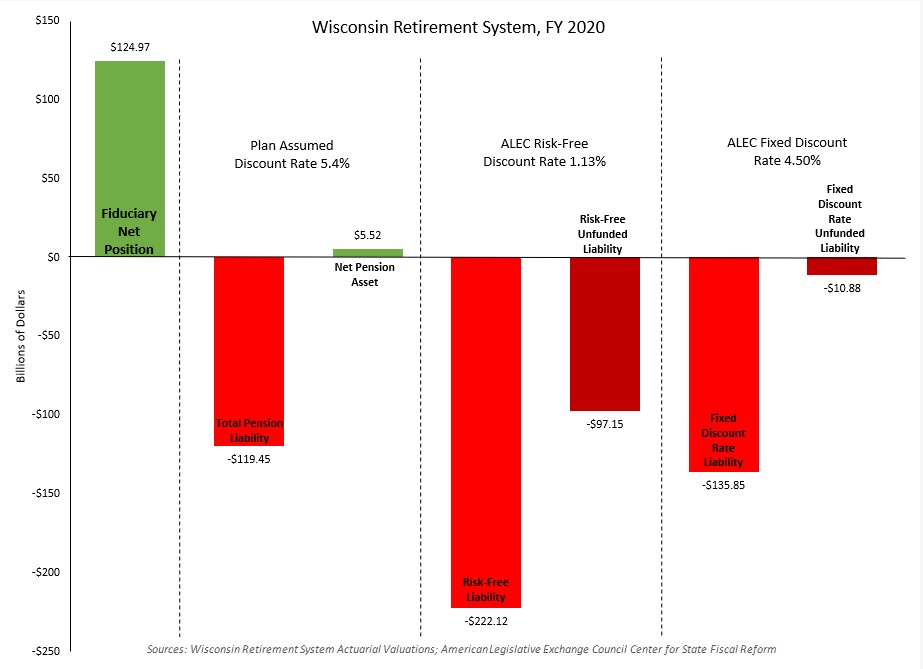Timeless Fiscal Policy Lessons from Bob Williams

In March, we lost a champion of sound fiscal policy, ALEC Senior Fellow Bob Williams. Bob made such an impact on state tax and fiscal policy that the State Policy Network named an award in outstanding policy achievement after him. Anyone who knew Bob knew he was always happy to discuss and offer advice on free-market policy solutions.
Bob Williams lived an amazing life. An accountant by training, Bob was an auditor at the Pentagon and Post Office for the US Government Accountability Office. He then went on to serve five terms in the Washington State legislature and was the 1988 Republican nominee for governor of Washington state.
Bob founded the Washington Freedom Foundation in 1991 with Lynn Harsh where he remained a senior fellow until his passing. Bob also co-founded State Budget Solutions, which later became a part of the ALEC Center for State Fiscal Reform. Bob Williams served as an ALEC member when he was a legislator, on the ALEC Executive Board, on the ALEC Private Sector Board, on the ALEC Board of Scholars, and as a member of the ALEC policy team. To date, he is the only person to serve all those roles at ALEC.
Among his many achievements, Bob was an integral part of growing the ALEC Center for State Fiscal Reform, especially the hard-hitting research on pensions and state budgets.
Bob was one of the first co-authors of the ALEC annual pension report Unaccountable and Unaffordable. He helped set the ALEC pension reports apart from other state pension reports by having the courage to challenge state pension assumptions. Bob was not afraid to call out pension plans that were using high discount rates to obscure pensions liabilities and states that were underfunding pension plans by not making the full required contributions.
Bob’s challenges led to use of the risk-free discount rate based on the yield curves of the 10-year and 20-year U.S. Treasury bonds. Using the risk-free discount rate shows the true cost of unfunded liabilities by applying a discount rate that reflects the fact that a state cannot back out of its pension promises. This same risk-free discount rate is now featured in two of the three ALEC debt reports, Unaccountable and Unaffordable and Other Post-Employment Benefit Liabilities. Below is an example of how using different discount rates dramatically affects the present value of unfunded liabilities in Wisconsin, the best funded pension system in the country.

Notice that by changing the discount rate by less than a percentage point (5.4% to 4.5%), the Wisconsin Retirement System goes from a surplus of $5.52 billion to $10.88 billion in unfunded liabilities. When the risk-free discount rate is applied, the Wisconsin Retirement System is shown to have over $97 billion in unfunded liabilities. When the risk-free rate is applied to plans that are not as well funded as Wisconsin, such as California, Illinois, and New Jersey, unfunded liabilities increase into the hundreds of billions of dollars.
Outside of the ALEC debt reports, Bob authored the monthly ALEC publication, The Williams Report, keeping readers updated on the good, the bad, and the ugly of state fiscal policy and state pensions.
Bob was also a champion of priority-based budgeting. Throughout his writings for ALEC, Bob emphasized the importance of states spending within their means. He called for state leaders to focus on the important questions:
1. What is the proper role of government?
2. What are the essential services the government must provide to fulfill its purpose?
3. How will we know if the government is doing a good job?
4. What should all this cost?
5. When cuts must be made, how will they be properly prioritized?
Bob also wrote about the consequences of not following responsible fiscal policy. When writing about the Detroit Bankruptcy in July 2013, Bob warned, “Above all, elected officials around the country must take this lesson from Detroit: Do not spend money you do not have because one day, the bills will come due.” In that same blog post, Bob also considered the glass half full. Once bankruptcy was behind the Motor City, there were plenty of opportunities ahead without the “crushing weight of political failure, debt, and corruption.”
His analysis of the fiscal state of Chicago is just as applicable today as it was nine years ago. Overspending has put the Windy City into some serious trouble and bailouts from the federal government are not the answer.
Bob’s lessons on fiscal policy are timeless and invaluable. We can honor his memory by applying those lessons to current problems.




